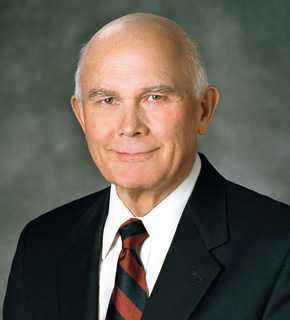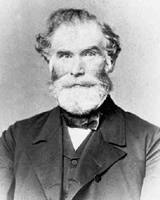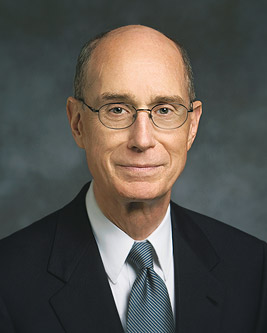SEARCH BY TITLE
 “Always Have His Spirit”
“Always Have His Spirit”
In partaking of the sacrament, we can renew the effects of our baptism. When we desire a remission of our sins through the Atonement of our Savior, we are commanded to repent and come to him with a broken heart and a contrite spirit. In the waters of baptism we witness to the Lord that we have repented of our sins and are willing to take his name upon us and serve him to the end. The effects are described by Nephi: “For the gate by which ye should enter is repentance and baptism by water; and then cometh a remission of your sins by fire and by the Holy Ghost”. That last promise is fulfilled as a result of our receiving the gift of the Holy Ghost. The renewal of our covenants by partaking of the sacrament should also be preceded by repentance, so we come to that sacred ordinance with a broken heart and a contrite spirit. Then, as we renew our baptismal covenants and affirm that we will “always remember him”, the Lord will renew the promised remission of our sins, under the conditions and at the time he chooses. One of the primary purposes and effects of this renewal of covenants and cleansing from sin is “that [we] may always have his Spirit to be with [us]”. My brothers and sisters, I solemnly witness to you that these doctrines and principles are true. In view of these truths, I plead with all members of the Church, young and old, to attend sacrament meeting each Sabbath day and to partake of the sacrament with the repentant attitude described as “a broken heart and a contrite spirit”. I pray that we will do so with the reverence and worship of our Savior that will signify a serious covenant to “always remember him”. The Savior himself has said that we should partake “with an eye single to my glory—remembering unto the Father my body which was laid down for you, and my blood which was shed for the remission of your sins” I pray that we will also partake of the sacrament with the submissive manner that will help us accept and serve in Church callings in order to comply with our solemn covenant to take his name and his work upon us. I also plead for us to comply with our solemn covenant to keep his commandments.
 The Parable of the Sower
The Parable of the Sower
But even those raised in the Church—long-term members—can slip into a condition where they have no root in themselves. I have known some of these—members without firm and lasting conversion to the gospel of Jesus Christ. If we are not rooted in the teachings of the gospel and regular in its practices, any one of us can develop a stony heart, which is stony ground for spiritual seeds. Spiritual food is necessary for spiritual survival, especially in a world that is moving away from belief in God and the absolutes of right and wrong. In an age dominated by the Internet, which magnifies messages that menace faith, we must increase our exposure to spiritual truth in order to strengthen our faith and stay rooted in the gospel. Young people, if that teaching seems too general, here is a specific example. If the emblems of the sacrament are being passed and you are texting or whispering or playing video games or doing anything else to deny yourself essential spiritual food, you are severing your spiritual roots and moving yourself toward stony ground. You are making yourself vulnerable to withering away when you encounter tribulation like isolation, intimidation, or ridicule. And that applies to adults also.
 The Spirit and The Sacrament
The Spirit and The Sacrament
The ordinance which we partake of from Sabbath to Sabbath is one of the institutions of our Savior under the gospel dispensation which he has instituted for the purpose of showing forth the Lord’s death and of his suffering. This no doubt we are all aware of. We all understand it to be an ordinance for that purpose. But do we notwithstanding that understand the object for which this was instituted? Do we feel and realize these things as we ought from Sabbath to Sabbath? Do we think of these things? Do we meditate upon them? Do we reflect upon the subject or do we merely come and partake of this ordinance as a kind of secondary consideration, not thinking about the object for which it was instituted and thus pass the time without having benefitted? Do we, when we come to the Lord’s supper, so-called, come with our hearts prepared? Do we examine ourselves, look into the condition and state of feeling in our faithfulness and our diligence and our past conduct? Do we review these things so as to come and partake of this ordinance acceptably as the Lord has instituted so that we shall receive benefit therefrom? These are questions of importance. … Are there not individuals under [the] sound of my voice that come here and partake of this holy ordinance whether they are in transgression or not, whether they have been faithful in [their] duties during [the] week or not, without any repentance/confession before the Lord, without calling upon his holy name for forgiveness after turning away from their transgressions and iniquities to which they are subject? [I have] seen this is the case. Well this ought not to be. Those persons ought to realize the sacredness of this ordinance, the importance of repenting with all their hearts if sinned. They ought to realize if they do injure the feelings of brethren and sisters and endeavor to make reconciliation to realize the importance of praying in the morning and also at night. They ought [to] realize the importance of praying in secret and maintaining [the] spirit of prayer in [their] hearts. All of these things ought to be realized by those who come and partake of this ordinance. …
 That We May Always Have His Spirit to Be with Us
That We May Always Have His Spirit to Be with Us
The Spirit of the Lord can be our guide and will bless us with direction, instruction, and spiritual protection during our mortal journey. We invite the Holy Ghost into our lives through meaningful personal and family prayer, feasting upon the words of Christ, diligent and exacting obedience, faithfulness and honoring of covenants, and through virtue, humility, and service. And we steadfastly should avoid things that are immodest, coarse, crude, sinful, or evil that cause us to withdraw ourselves from the Holy Ghost. We also invite the ongoing companionship of the Holy Ghost as we worthily partake of the sacrament each Sabbath day: “And that thou mayest more fully keep thyself unspotted from the world, thou shalt go to the house of prayer and offer up thy sacraments upon my holy day”. Through the ordinance of the sacrament we renew our baptismal covenant and can receive and retain a remission of our sins. In addition, we are reminded on a weekly basis of the promise that we may always have His Spirit to be with us. As we then strive to keep ourselves clean and unspotted from the world, we become worthy vessels in whom the Spirit of the Lord can always dwell.
 That We May Be One
That We May Be One
Third, we promise as we take the sacrament to keep His commandments, all of them. President J. Reuben Clark Jr., as he pled—as he did many times—for unity in a general conference talk, warned us against being selective in what we will obey. He put it this way: “The Lord has given us nothing that is useless or unnecessary. He has filled the Scriptures with the things which we should do in order that we may gain salvation.” President Clark went on: “When we partake of the Sacrament we covenant to obey and keep his commandments. There are no exceptions. There are no distinctions, no differences”. President Clark taught that just as we repent of all sin, not just a single sin, we pledge to keep all the commandments. Hard as that sounds, it is uncomplicated. We simply submit to the authority of the Savior and promise to be obedient to whatever He commands. It is our surrender to the authority of Jesus Christ which will allow us to be bound as families, as a Church, and as the children of our Heavenly Father. The Lord conveys that authority through His prophet to humble servants. That faith turns our call as a home teacher or a visiting teacher into an errand from the Lord. We go for Him, at His command. An ordinary man and a teenage junior companion go into homes expecting that the powers of heaven will help them assure that families are united and that there is no hardness, lying, backbiting, nor evil speaking. That faith—that the Lord calls servants—will help us ignore their limitations when they reprove us, as they will. We will see their good intent more clearly than their human limitations. We will be less likely to feel offense and more likely to feel gratitude to the Master who called them.
